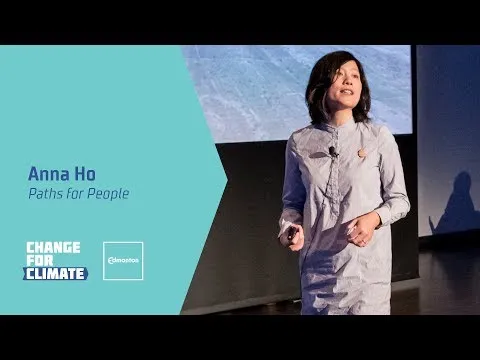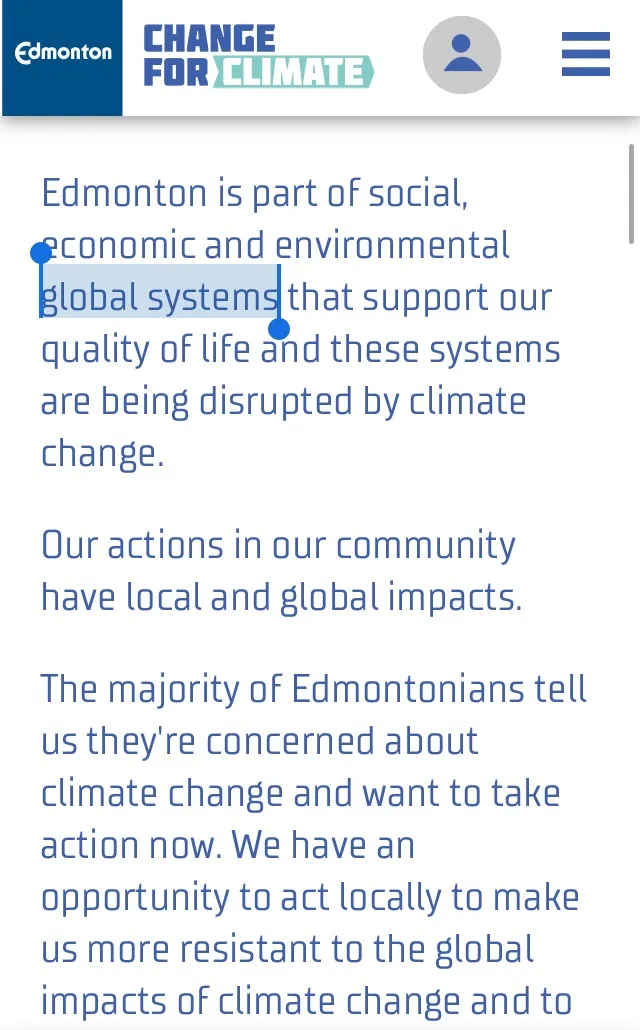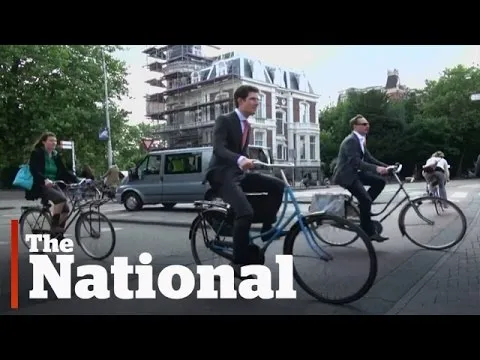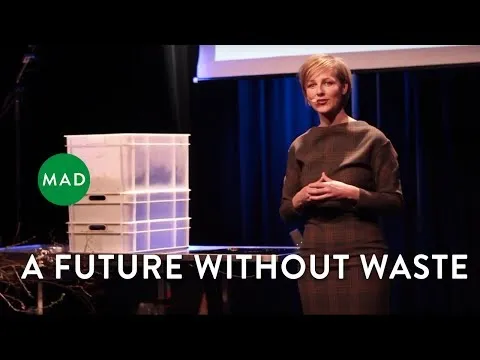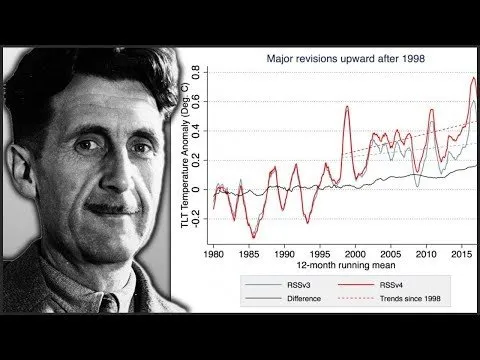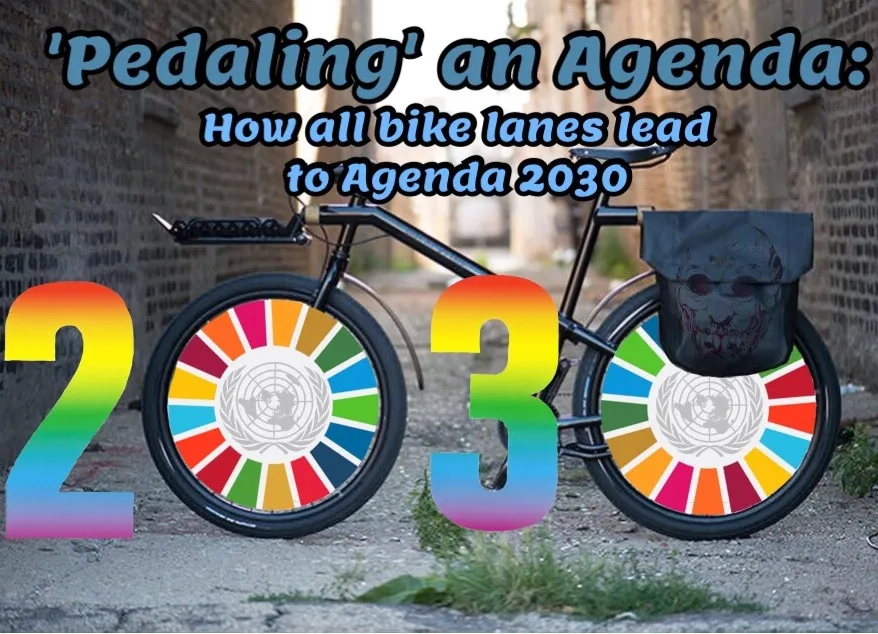
Hey steemites!
First, let me show you what inspired me to make this post.
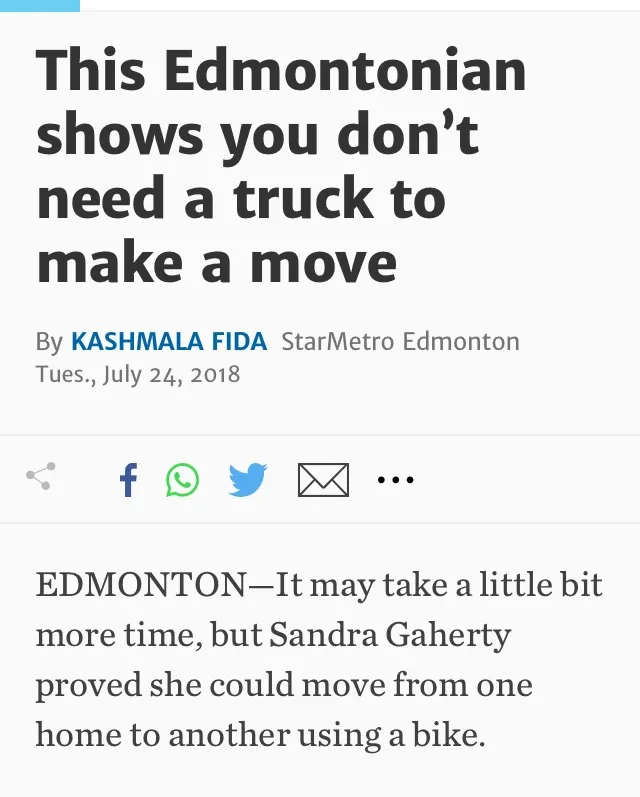

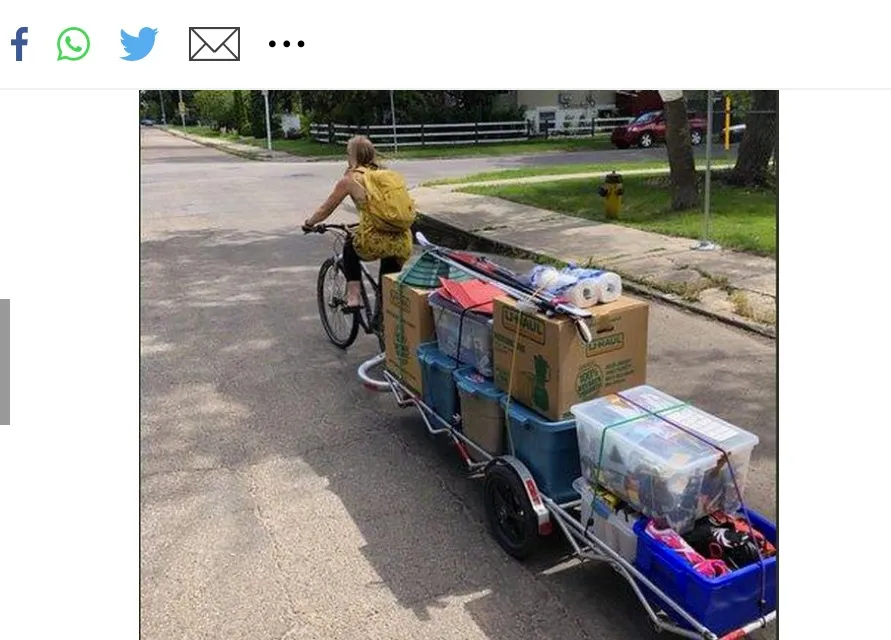
"“Moving can be a really stressful experience, but every time as soon as I got on the bike, I was just laughing and enjoying it. I find it much less stressful on the bicycle than if I was driving,” she said.
She said she has used a moving van and a pickup in previous relocations, and found that more difficult."
“I found it stressful thinking about where to park it and driving such a big vehicle and I’m not used to that,” Gaherty said. “(The bike) was much easier to manoeuvre. I could just get it up to the sidewalk in front of my new house.” source
A few years ago my city added bike lanes all throughout the city. Millions of dollars and all they did was added an extra line of paint and an image of a bicycle on the roads. At the time I thought, how dumb. Since then I've come to realize that this was more than just a shitty counsel decision and ton of paint. Once I became aware of UN agenda 2030, I quickly realized that this was only the beginning of a much bigger transition. With that said, why don't you hop on your 10 speed and let's do this!
"Moving to 'active transit'
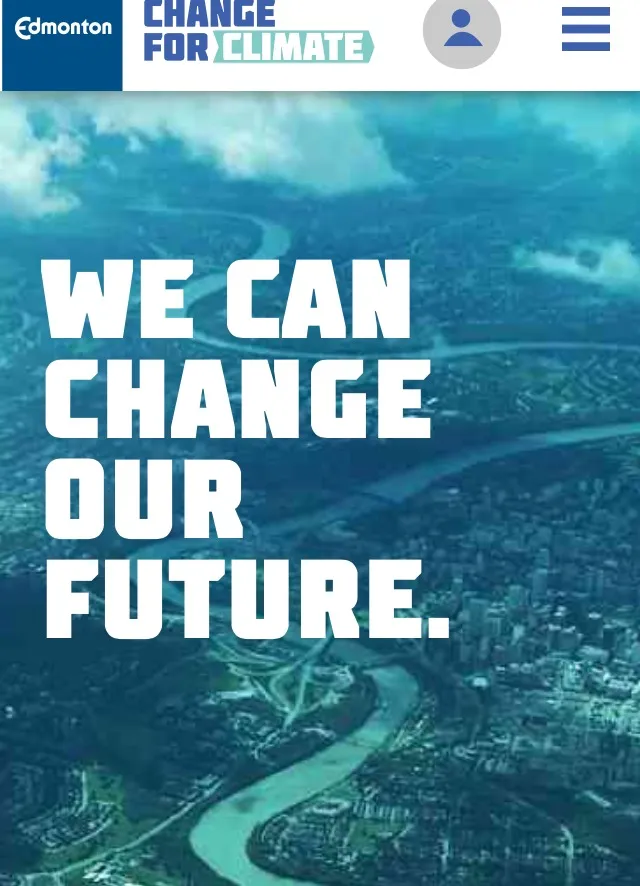
Yes, my city is balls deep into this agenda. And I intend to expose it to the fullest extent. But, not on this post. I wanted to focus on bicycles specifically. Not just in my city, but all over the world.
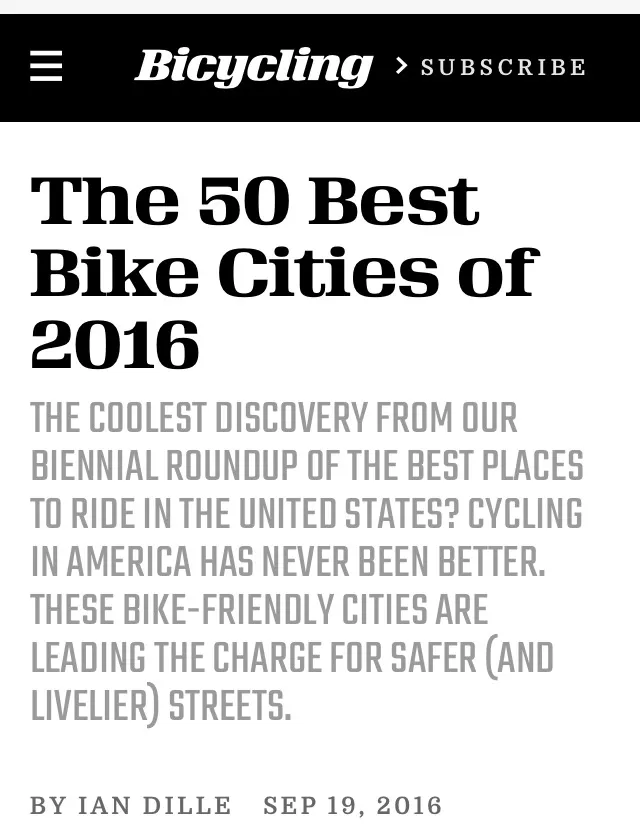
"The goal is not only to help you plan your next relocation but also to inspire riders and municipalities to advocate for change. (“Shaming works,” admits one city planner we spoke to this year.) Here are the 50 cities that made the cut this year—how does your town measure up?"
“The car is no longer king,” former Boston mayor Tom Menino, who oversaw the city for more than two decades, once famously declared. Under Menino’s reign, Boston transformed itself from this magazine’s perennial Worst City for Cycling designation to amongst the best cities for bicycling in the country. With its robust New Balance Hubway bike share system (one of the largest per capita with nearly 2,000 bikes), Boston experienced a 35 percent increase in Census-counted bicycle commuters between 2010 and 2014.
"A new bike-share system with 50 stations and 500 bikes was unveiled in July of 2015, and racked up 12,000 trips per month. In 2014, in partnership with the Green Lane Project, an initiative of the national advocacy organization People for Bikes, the city installed three protected bike lanes, including a cycletrack on Penn Avenue that funnels riders from the Strip District to Downtown and required changing the road to a one-way traffic pattern. When critics argued the new Penn Avenue bike lane saw little ridership, the Pittsburgh Downtown Partnership, which supported the lane, released numbers from an automated counter showing that the bike lane saw 24,000 trips in a single month.
The city’s three Open Streets events draw as many as 55,000 people to revel in motor vehicle-free roadways. And, Pittsburgh’s week-and-a-half-long Bike Fest includes about 75 events to celebrate cycling." - Pittsburgh
"The city gained national acclaim upon the opening of the Tilikum Crossing over the Willamette River, a bridge that carries busses, trains, cyclists and pedestrians—but not cars." - Portland
source
⬆️ Super long read but it really gives you a good idea of the transformation that's taking place.
Quick search on DuckDuckGo confirms city after city are indeed massively expanding their bike lanes/paths.
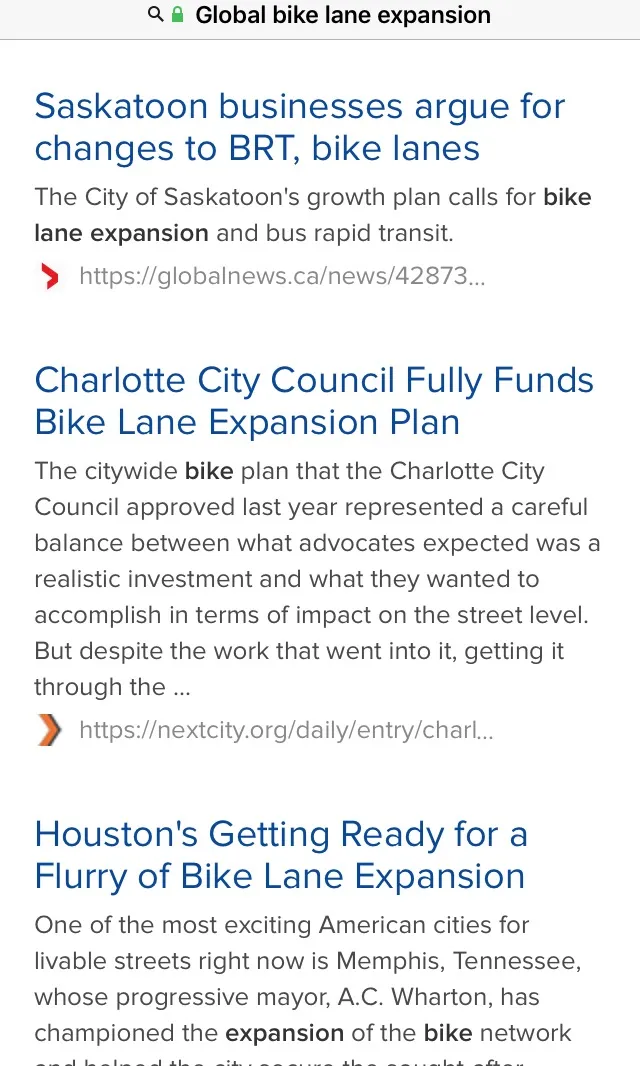
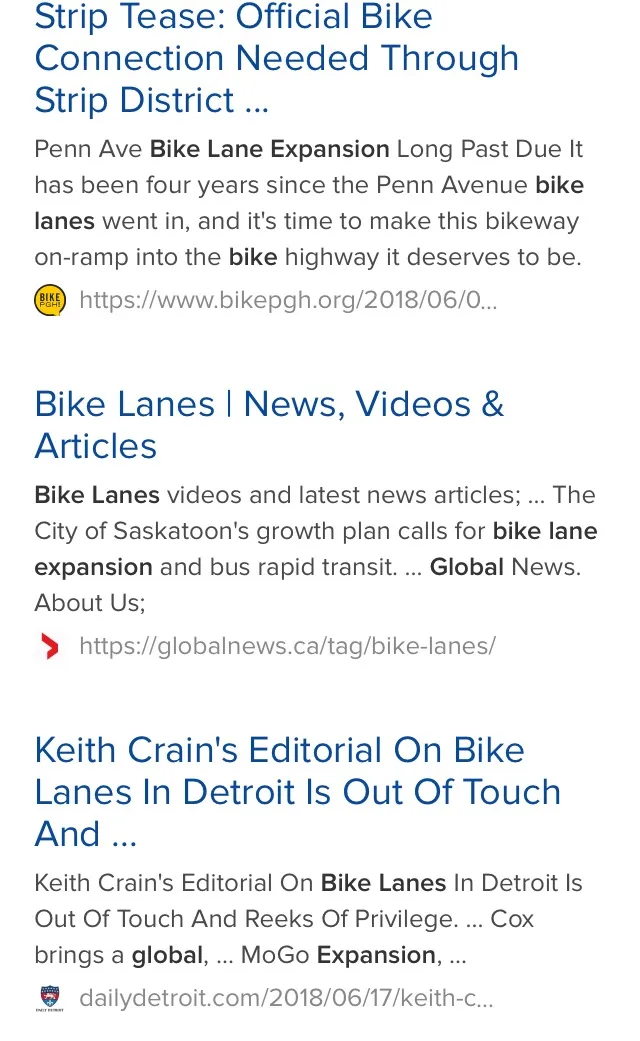
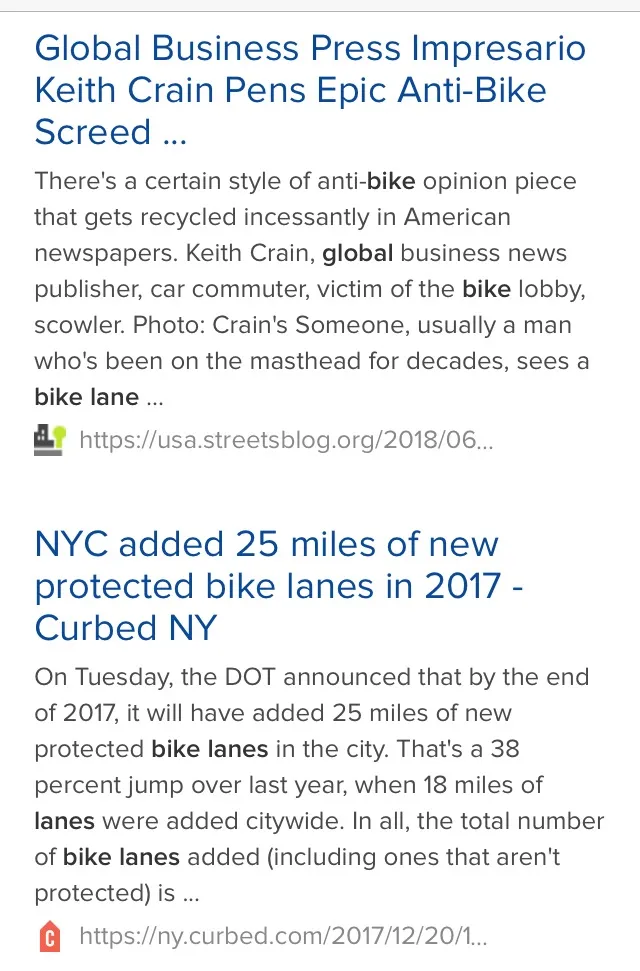
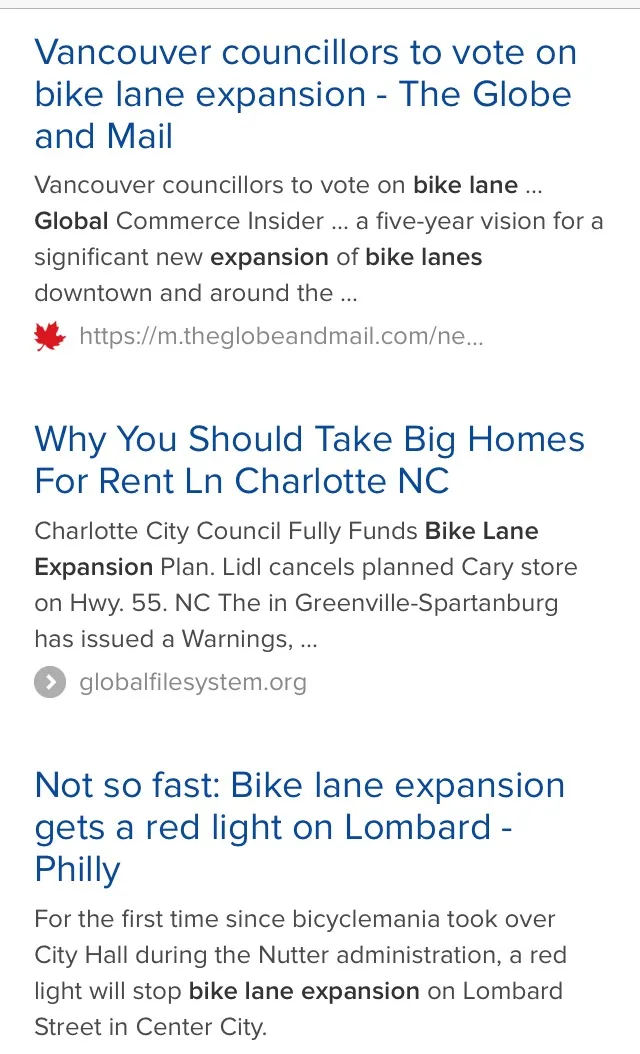
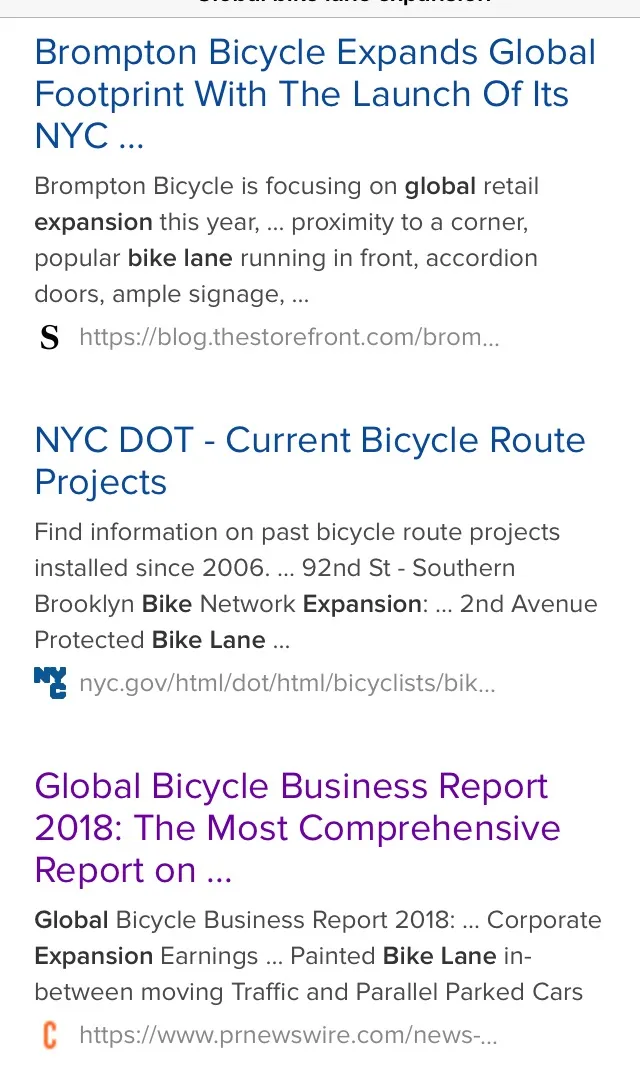
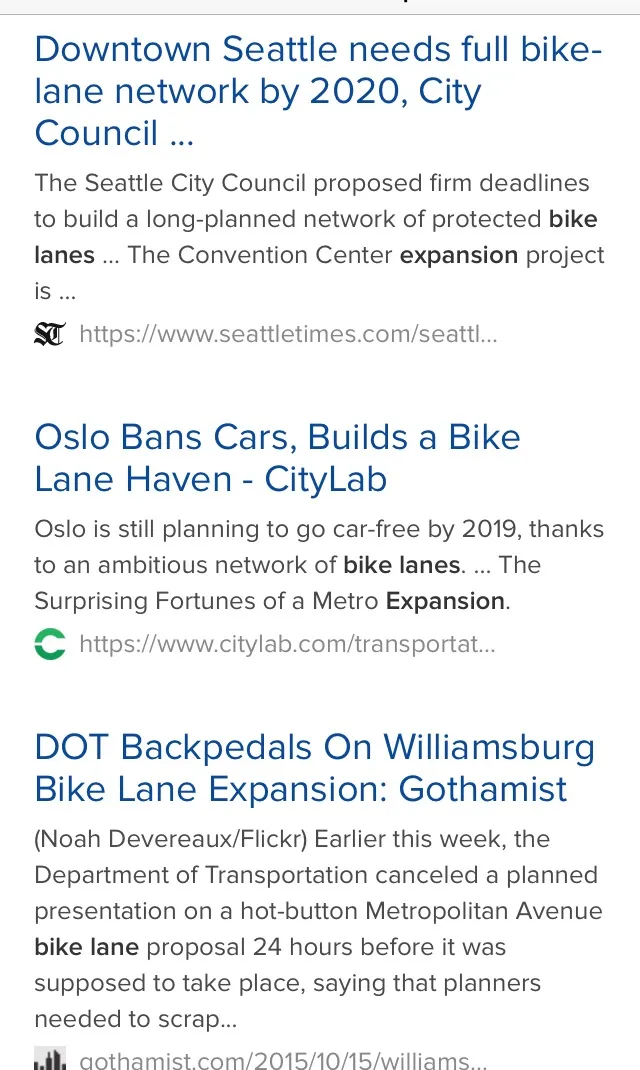
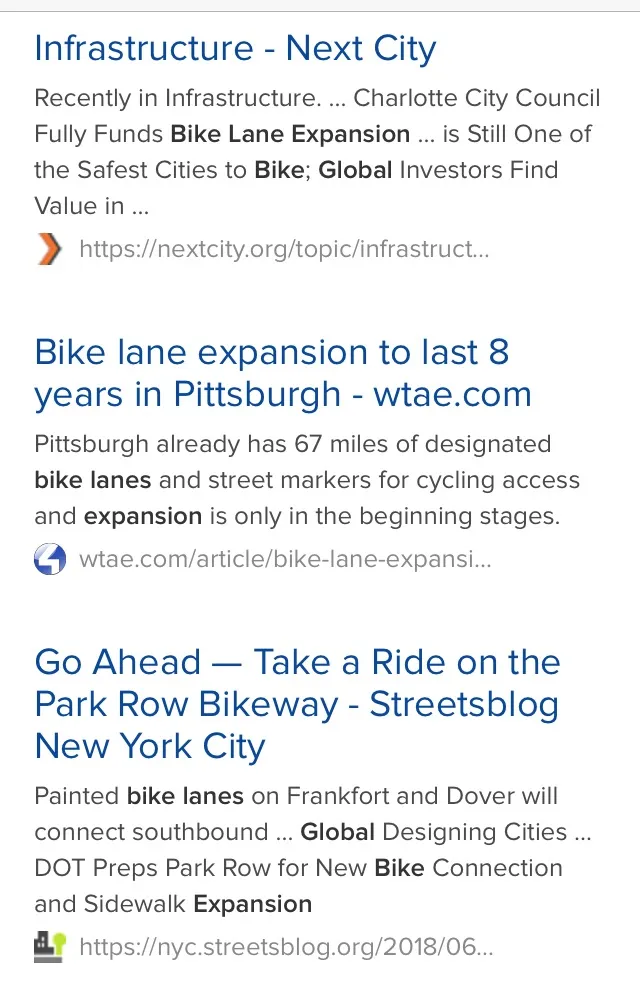
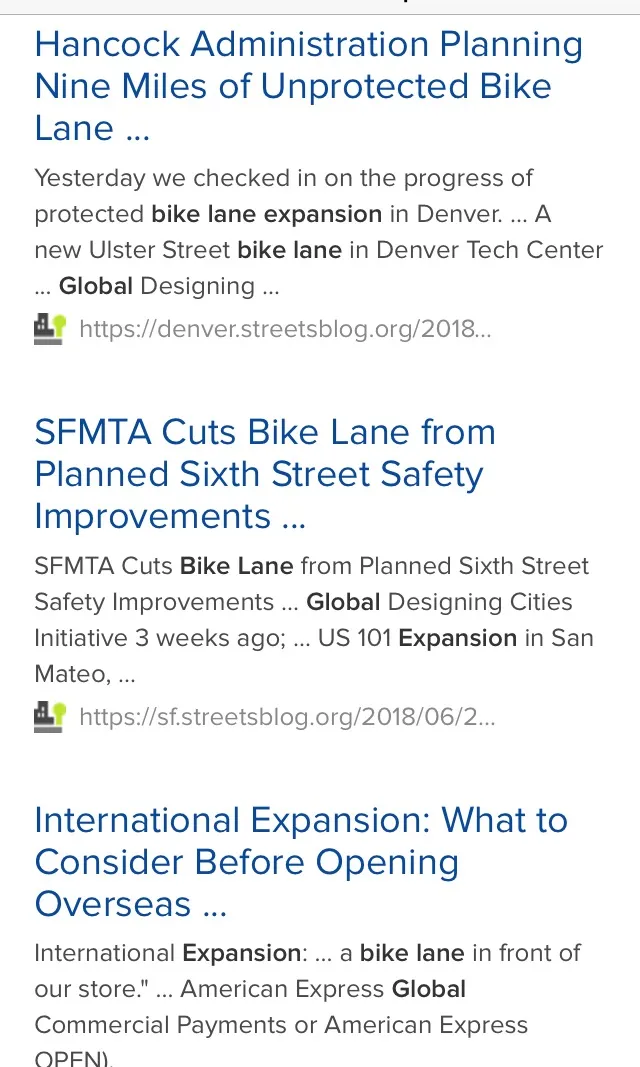
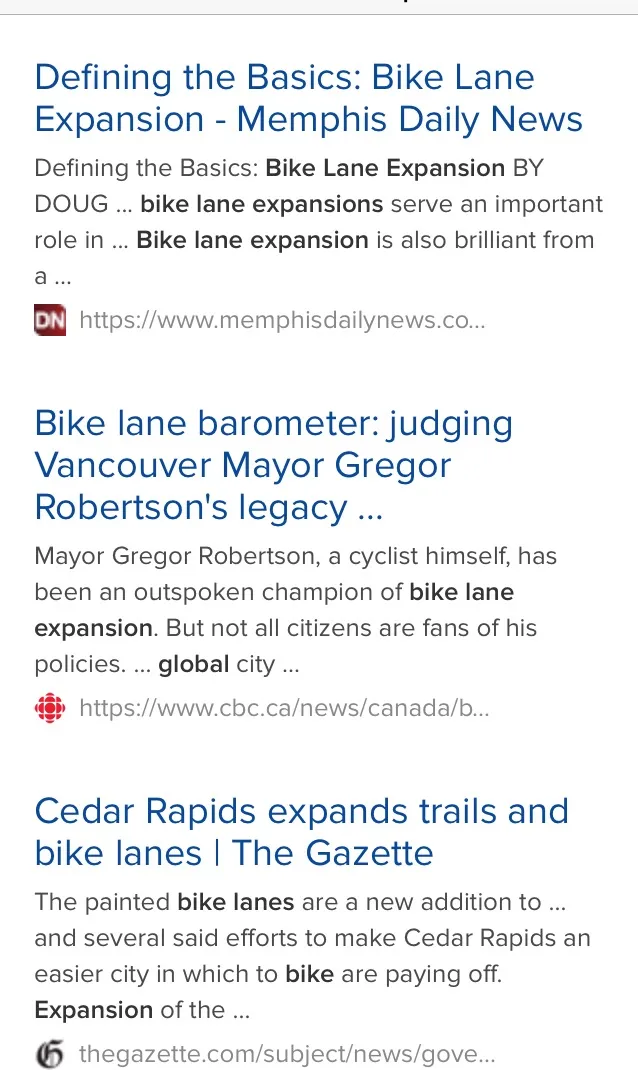
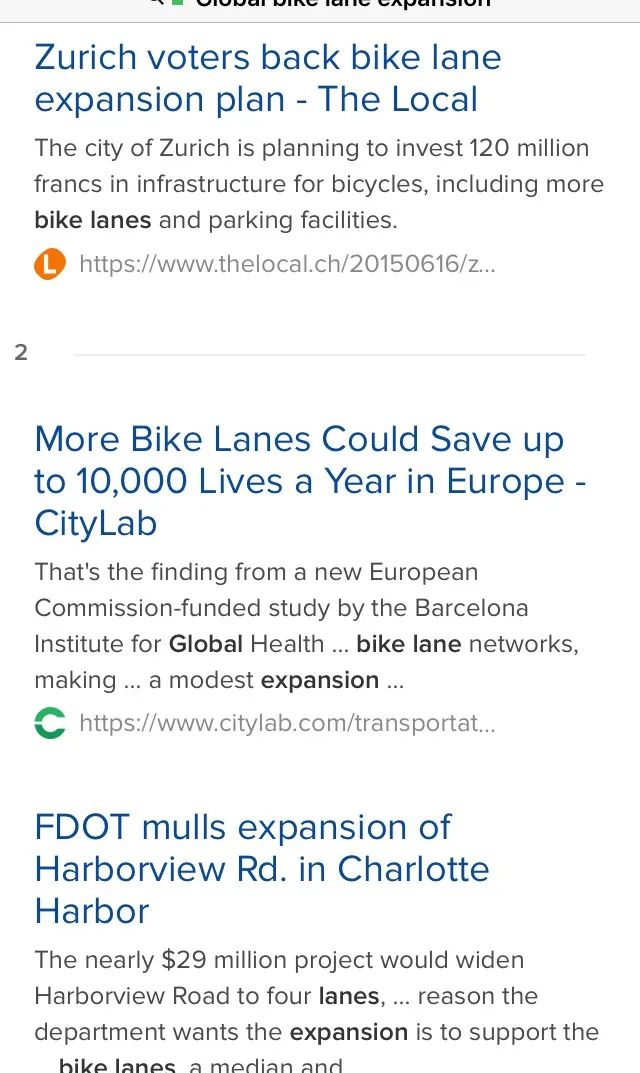
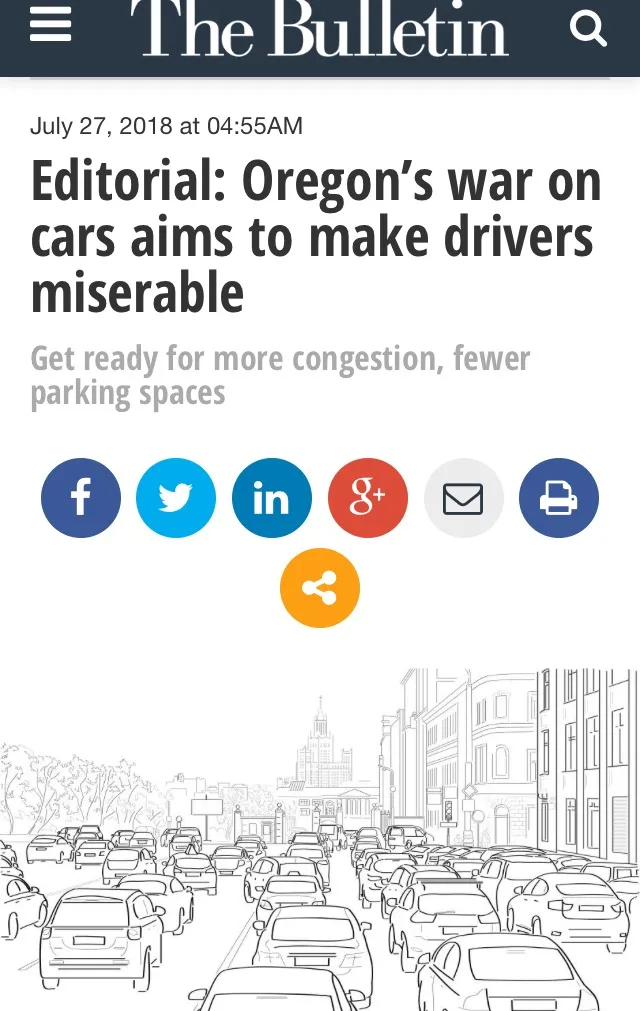
"Lest there be doubt about what the state’s after, the draft rules require cities like Bend to “establish performance measures and targets … that measure progress toward increasing transportation choices and reducing reliance upon the automobile.” Nope, no war on cars going on at all.
The rules go on to describe the ways in which cities, through the adoption of transportation system plans, ought to conduct their anti-car battles. To this end, the draft rules provide some options.
Cities, for example, may adopt a set of “performance measures and targets” that produce “a significant increase in the availability or convenience of modes of transportation other than the automobile” and result “in a reduction in reliance on the automobile.” These targets must be measurable and reportable to the state.
Alternatively, cities may adopt a per-capita target for vehicle miles driven, which must decline by 5 percent over 20 years."
From the Treehugger.com
"Bikes. What does that have to do with it? I like to ride my bike and so do you. So what? Bicycle advocacy groups are very powerful now. Advocacy. A fancy word for lobbying, influencing, and maybe strong-arming the public and politicians. What's the conection with bike groups? National groups such as Complete Streets, Thunderhead Alliance, and others, have training programs teaching their members how to pressure for redevelopment, and training candidates for office. It's not just about bike lanes, it's about remaking cities and rural areas to the 'sustainable model'. High density urban development without parking for cars is the goal. This means that whole towns need to be demolished and rebuilt in the image of sustainable development. Bike groups are being used as the 'shock troops' for this plan."
List of bike advocacy (Lobby) groups in the US.
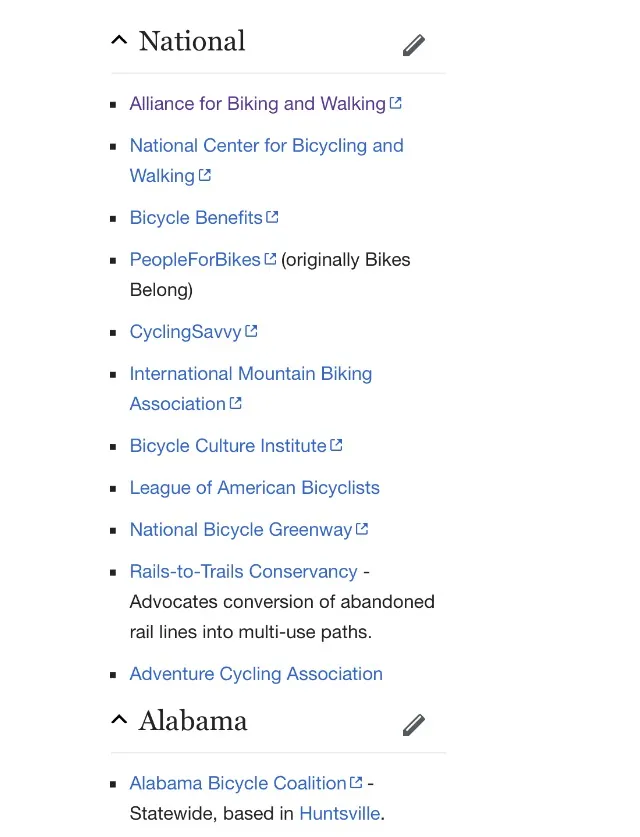
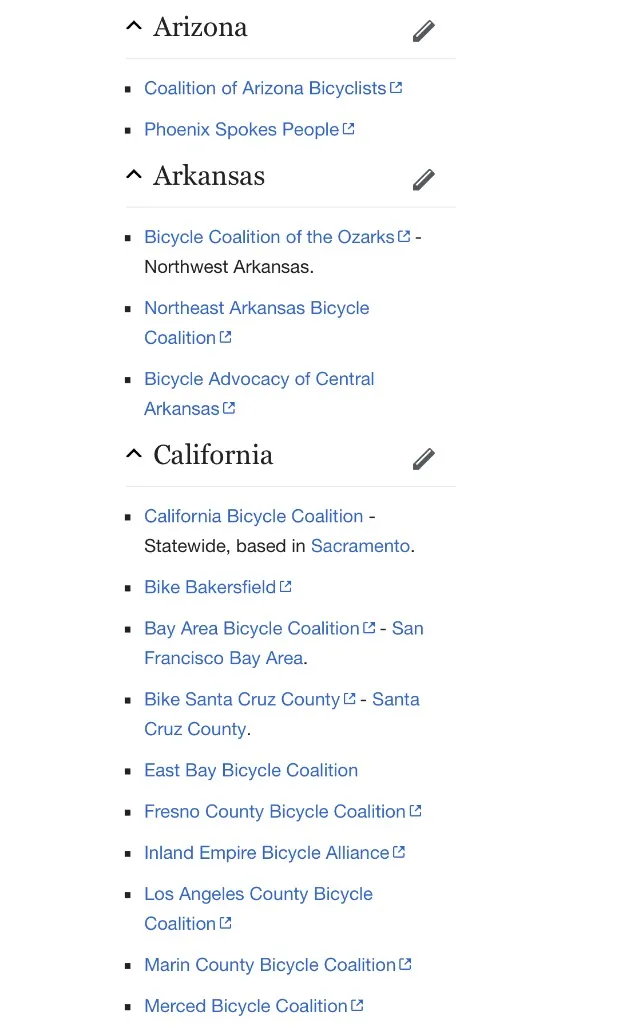
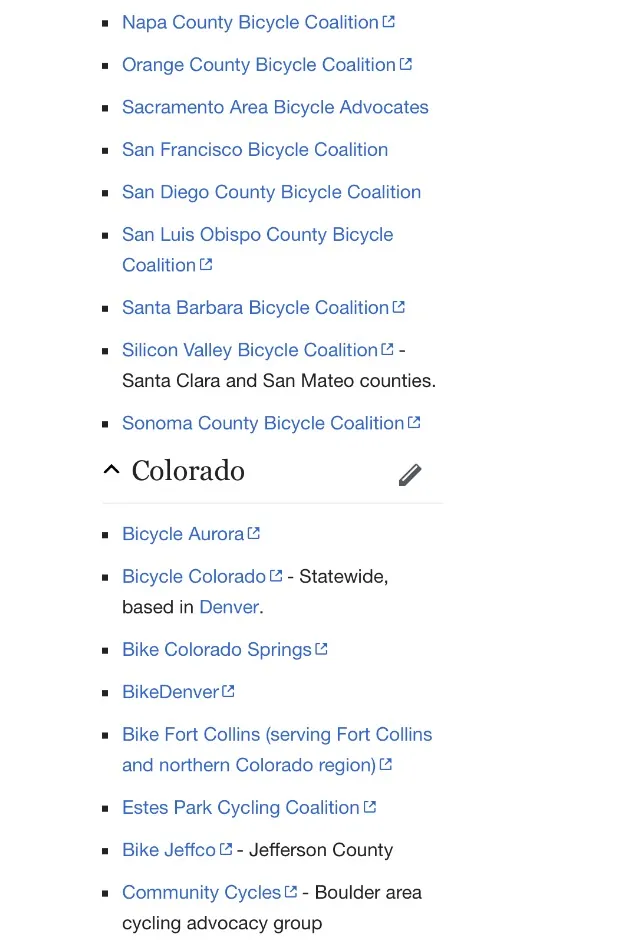
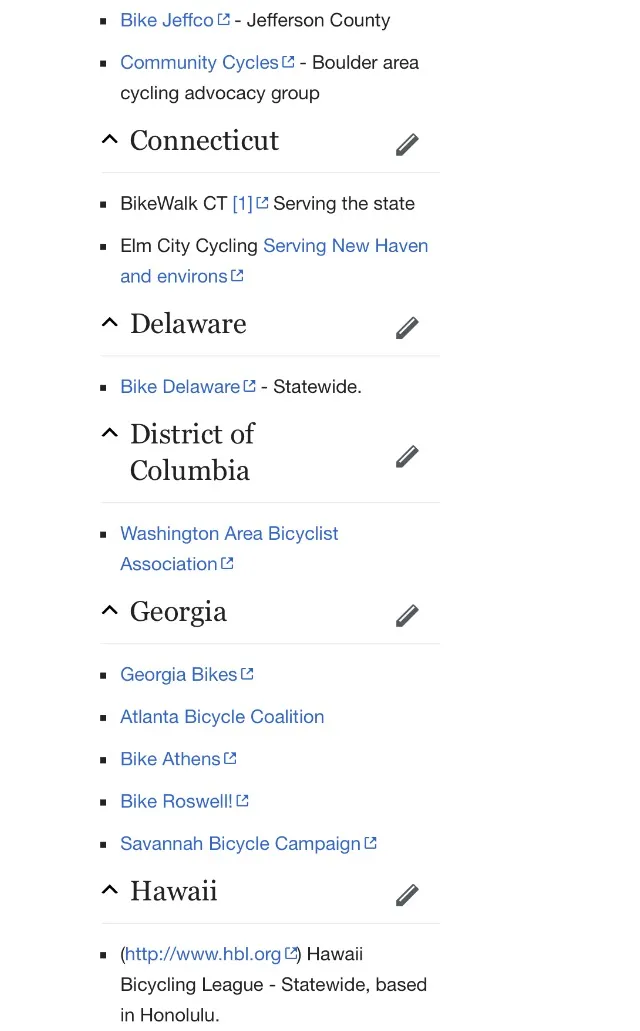
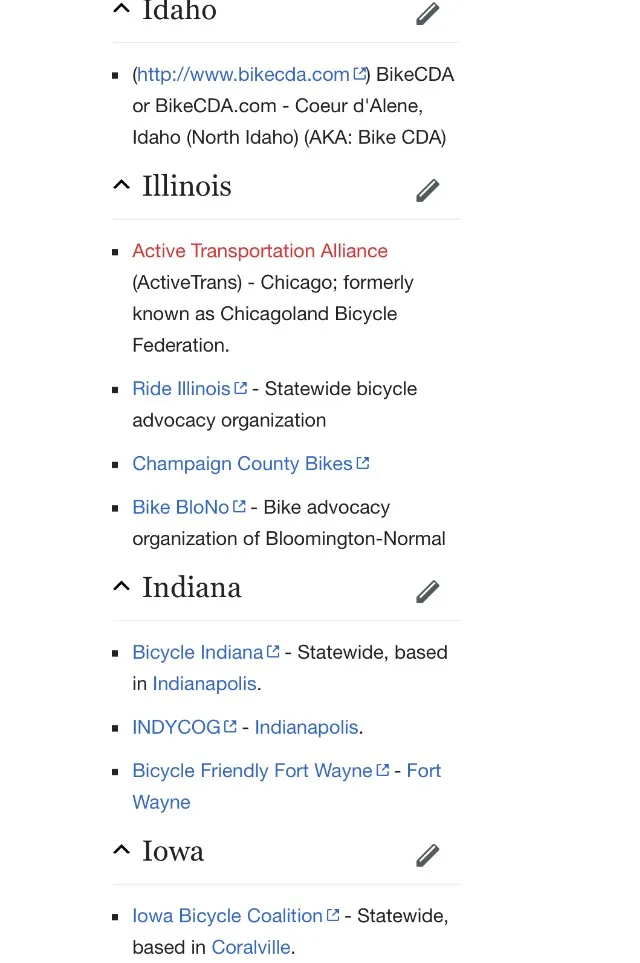
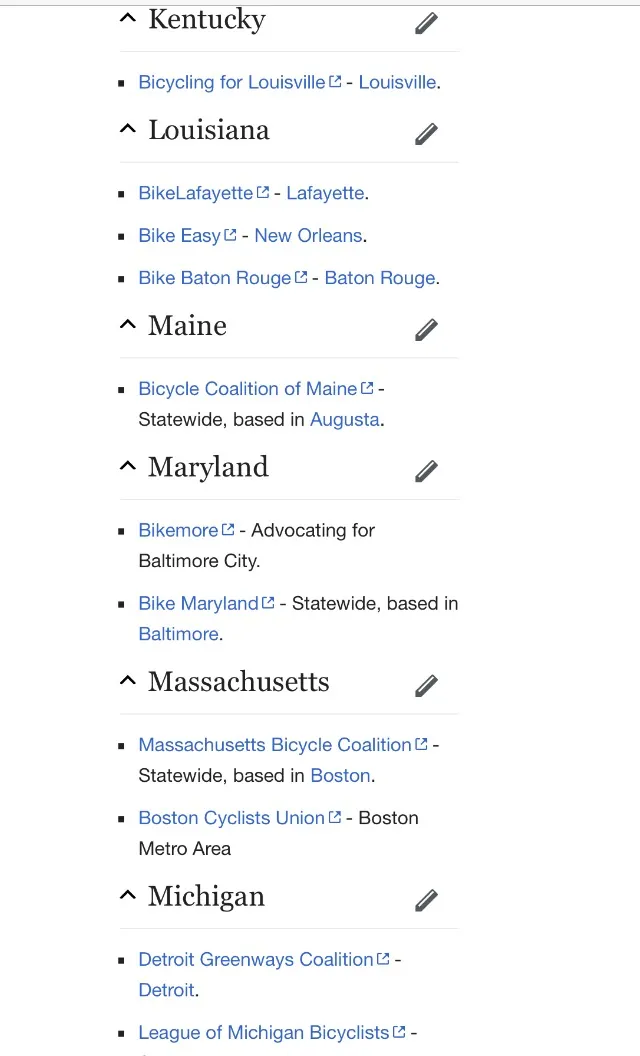
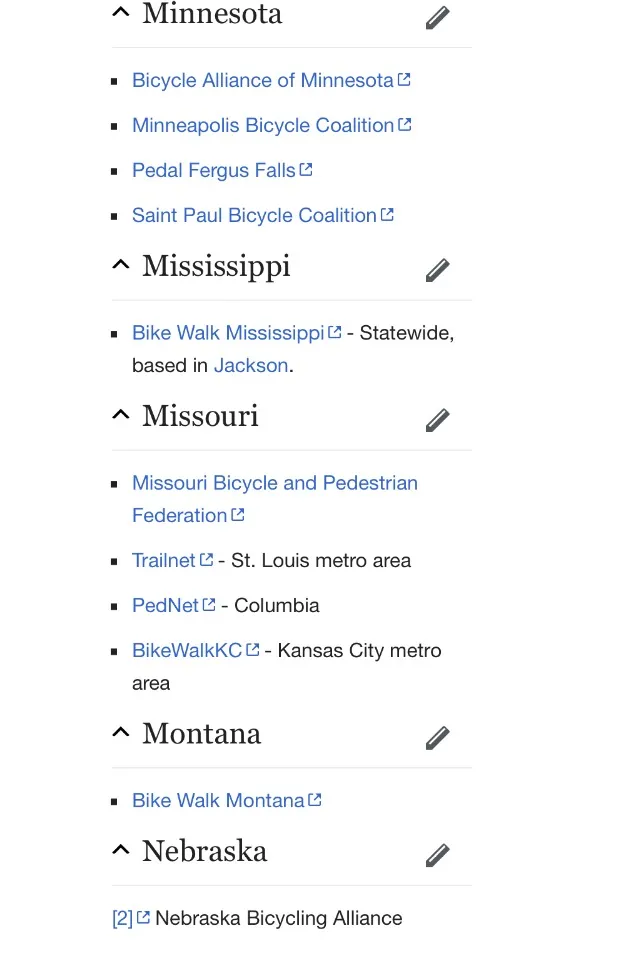
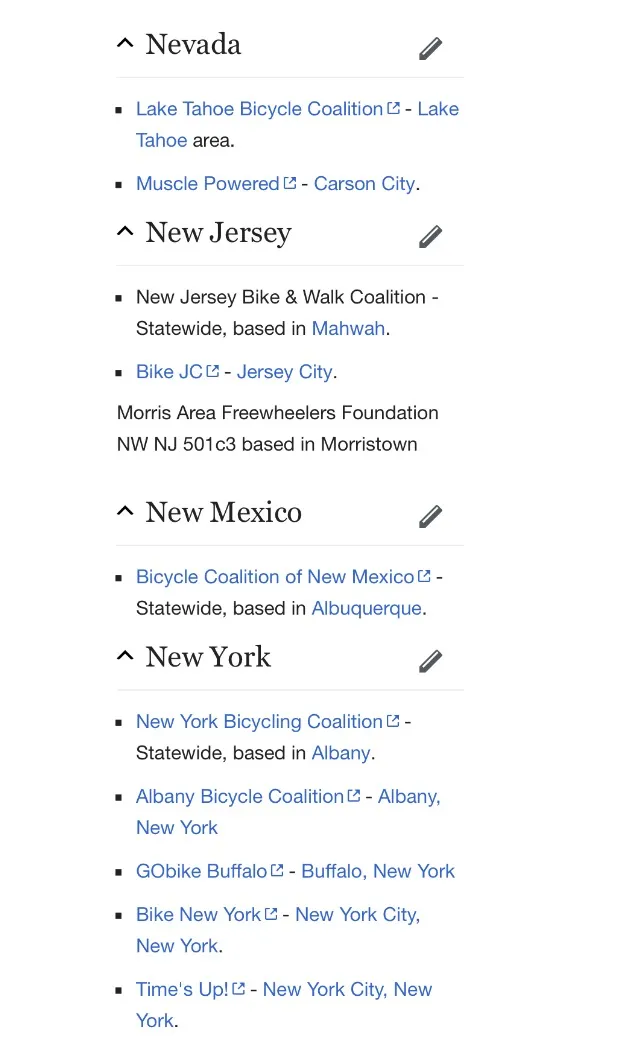
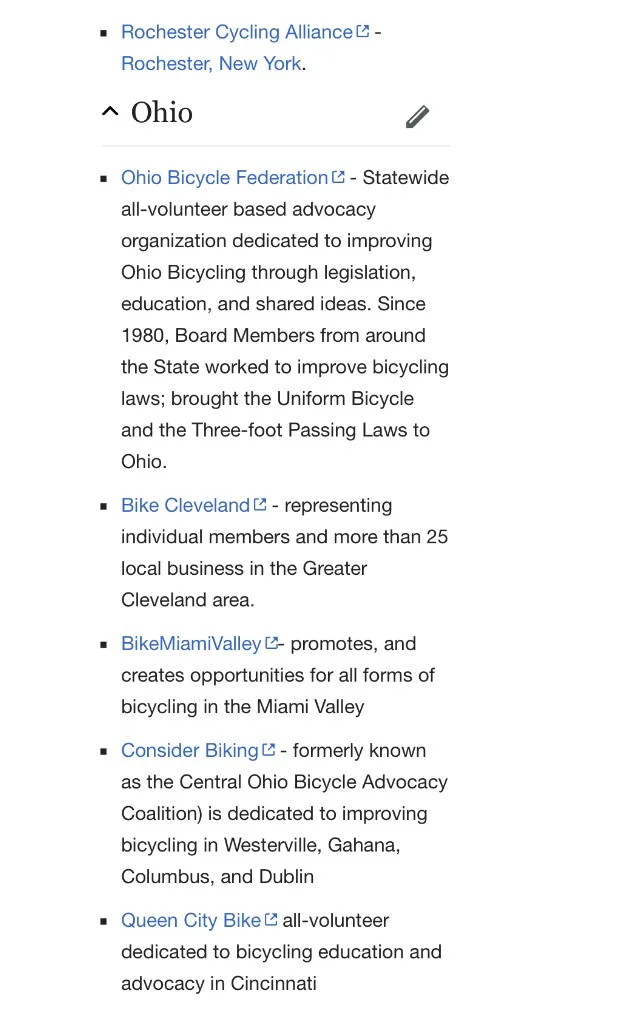
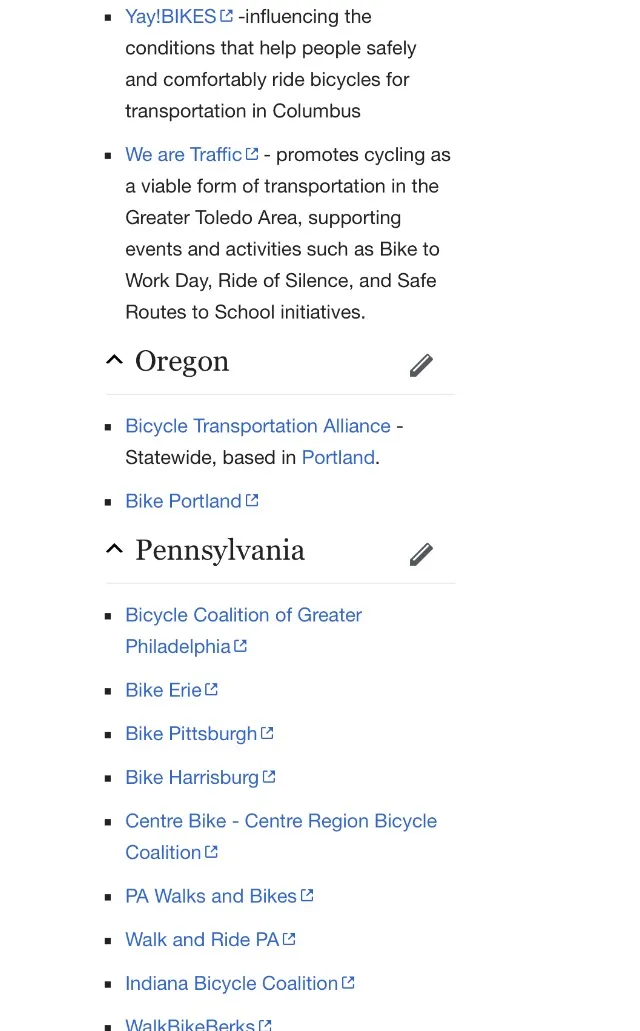
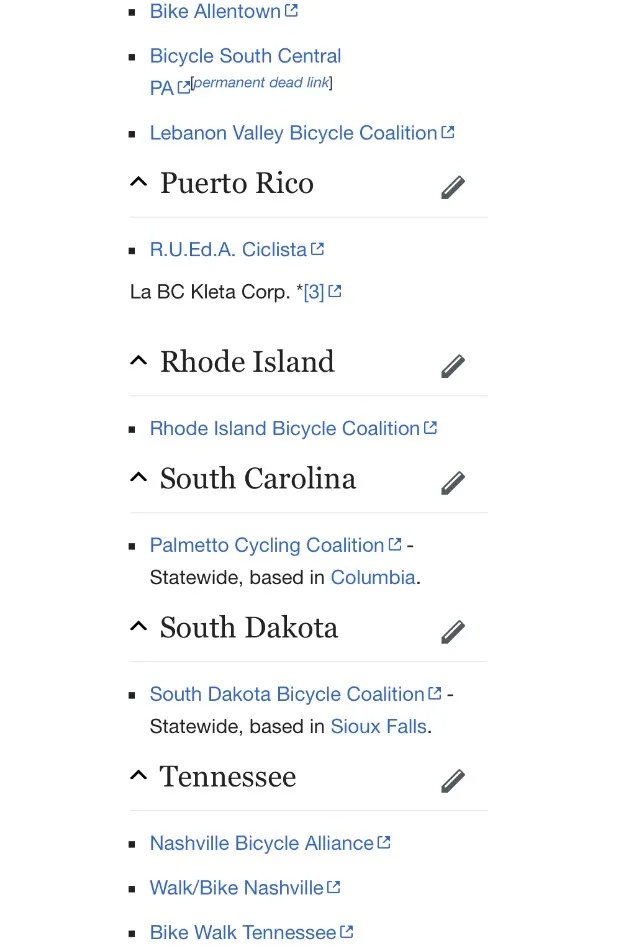
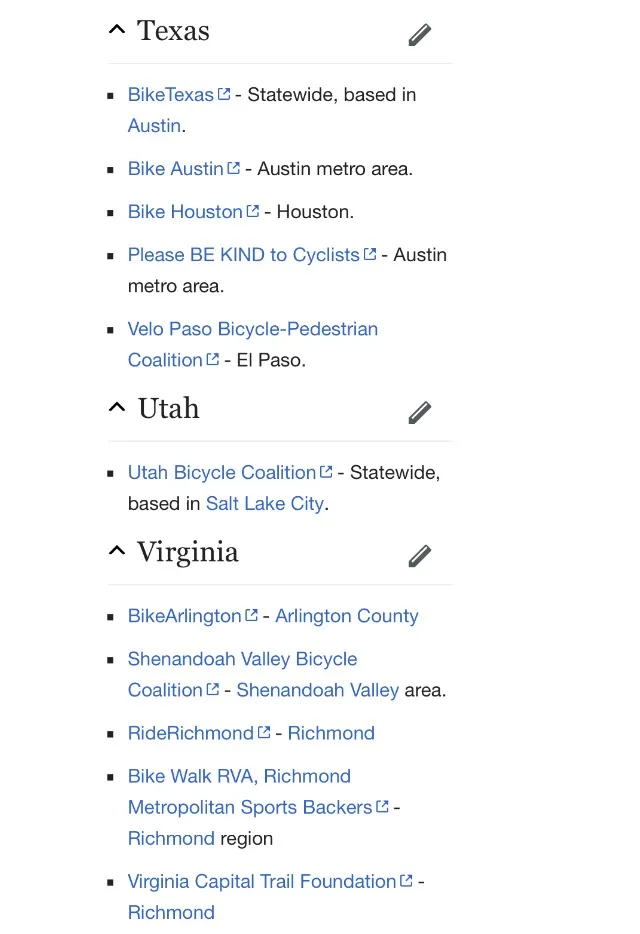
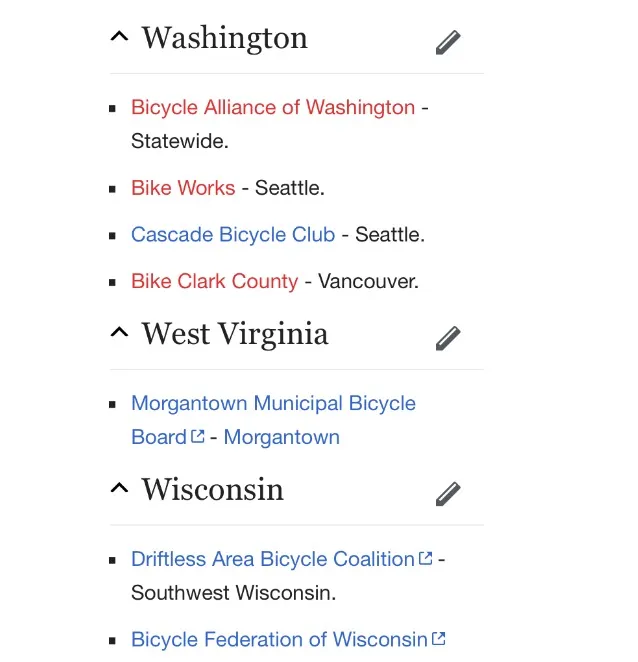
A lot of these cities have a vision zero policy. "Vision Zero is a multi-national road traffic safety project that aims to achieve a highway system with no fatalities or serious injuries involving road traffic."
For example
"Edmonton: On September 22, 2015 Edmonton City Council announced that it was "the first Canadian city to officially adopt Vision Zero." Its Road Safety Strategy 2016-2020 moves "towards zero fatal and major-injury collisions" but does not include a target of zero deaths or major injuries. The targets for the strategy are decreased rates of 1) overall injury collisions, and 2) collisions at intersections.[15]" source
I have a theory to share about this. But, before I do, let's look at the facts.
It is a fact that there is a massive push to get people out of cars and onto bicycles.
Insert bike propaganda piece here ⬇️

"While there are so many tangible benefits to riding instead of driving, including the fuel savings that work toward Sustainable America’s goal of halving American transportation fuel consumption by 2030, the humble bicycle also balances America’s dominant car culture." - source
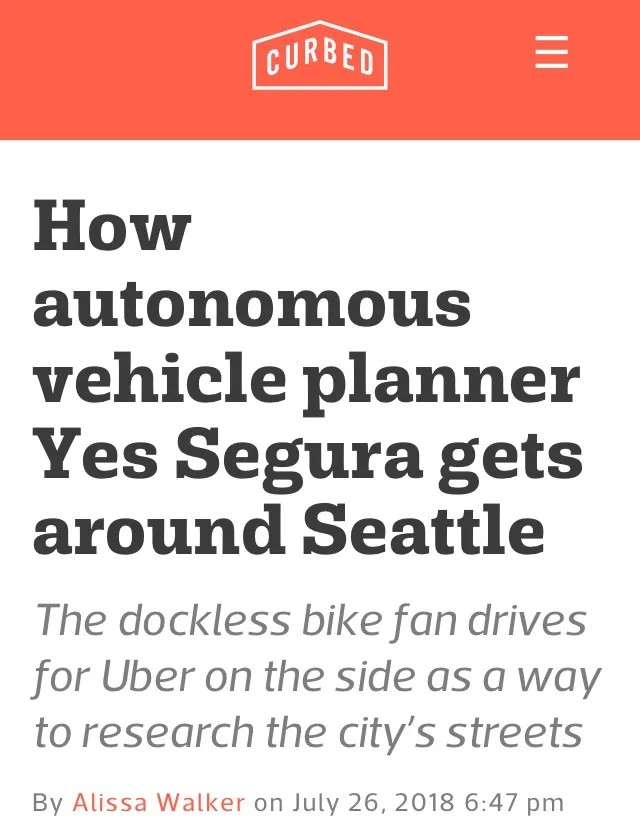
"When it comes to smart mobility options, I know that using a dockless bike is an option that will always be cheaper, healthier, faster, and more accessible."
"Honestly, I’m too lazy to walk, so if I see a dockless bike then I’ll immediately grab one to cruise to my end destination." - source
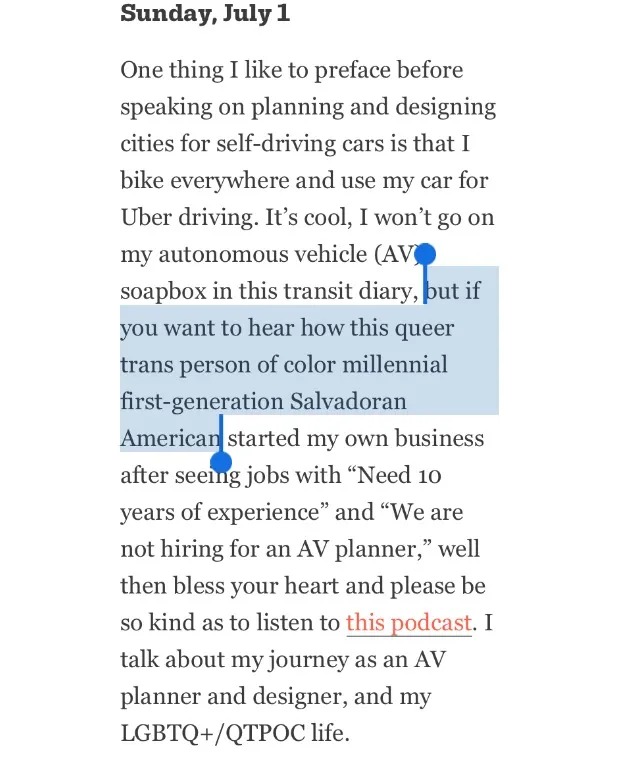
Fact: Bike lane expansion costs more than they tell you
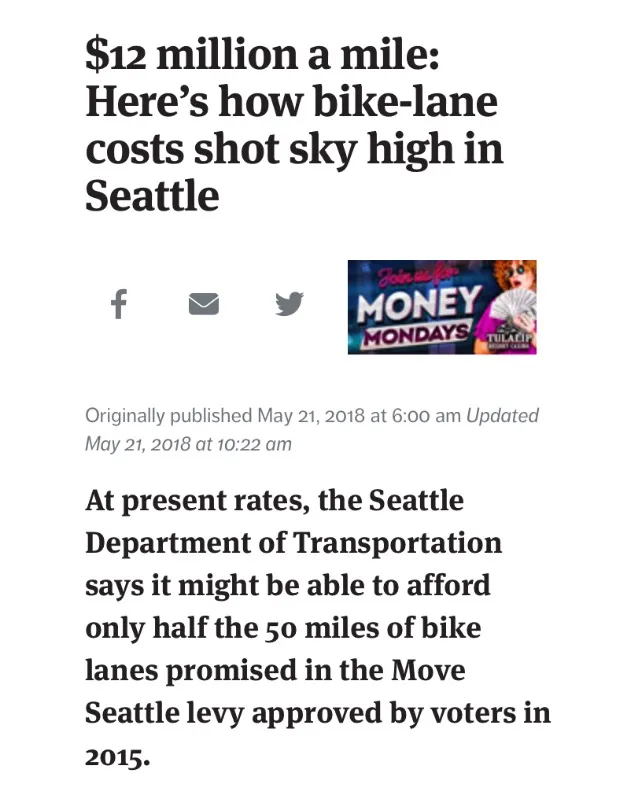 - source
- source
I like to take a moment to explain the purpose of this post. First, I have nothing against bicycles, I have nothing against bicycle riders. Except for a couple minor annoyances, that have no bearing on this post. I think bike riding is a perfectly good, healthy recreational activity and a means of travel (for some).
I'm simply approaching a much greater issue from a much smaller angle, in hopes to show the ways in which the UN 2030 agenda is transforming our world. I've done several posts in this fashion, that I'll link at the bottom of this post.
Now not everyone can ride a bike for all or even just some of their travel. So to fix this they are massive expanding BRT (Bus Rapid Transit) LRT (Light Rail Transit) and yes, Driverless cars.
Noticed when reading about the bike lane expansion in cities. They all mentioned a thing called 'bike share'.
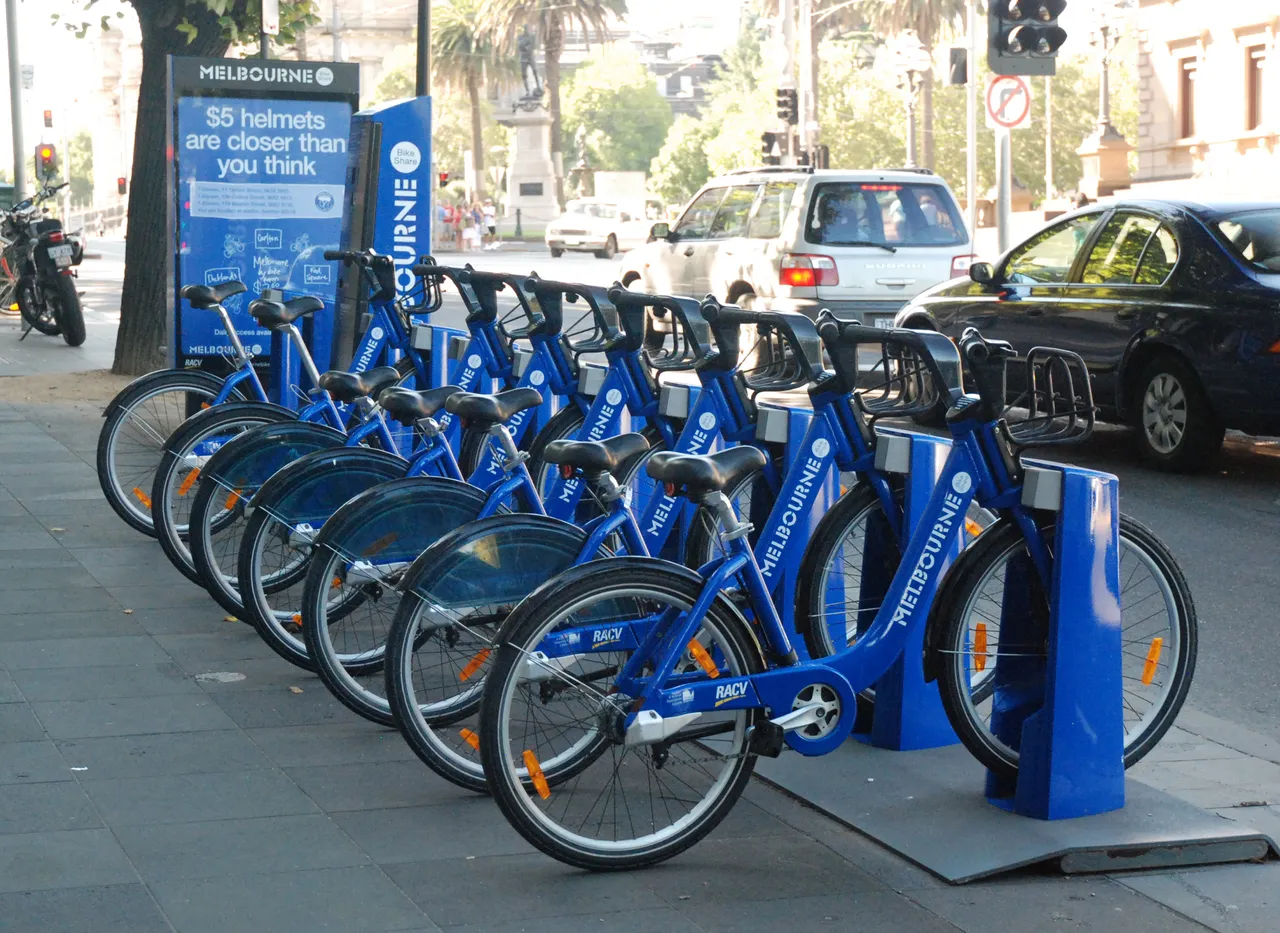
"Bicycle-sharing system A bicycle-sharing system, public bicycle system, or bike-share scheme, is a service in which bicycles are made available for shared use to individuals on a short term basis for a price or free. Many bike share systems allow people to borrow a bike from a "dock" and return it at another dock belong to the same system. Docks are special bike racks that lock the bike, and only release it by computer control. The user enters their payment information, and the computer unlocks a bike. When the user returns the bike, they place it in the dock, which locks it into the dock. For many systems, smartphone mapping apps show nearby stations with available bikes and open docks." source
It's an interesting concept and certainly a good motivator to get peddling. But unfortunately there is always two purposes (minimum) to everything they do. The ostensible purpose and the real purpose. The real purpose here is to turn things (like a bicycle) from a product into a service. Which, brings me to a very telling article.
"Welcome to the year 2030. Welcome to my city – or should I say, “our city.” I don’t own anything. I don’t own a car. I don’t own a house. I don’t own any appliances or any clothes."
"It might seem odd to you, but it makes perfect sense for us in this city. Everything you considered a product, has now become a service. We have access to transportation, accommodation, food and all the things we need in our daily lives. One by one all these things became free, so it ended up not making sense for us to own much." - source
I Recommend you read through the article (short read). And when you're done, consider this quote I heard someone once say. "If something is free, chances are, you are the product".
The author of that article is Ida Auken
"Ida Margrete Meier Auken (born 22 April 1978 in Frederiksberg) is a Danish politician and member of Parliament [1] from the Danish Social Liberal Party. She was Minister for the Environment of Denmark from 2011-14.
Originally a member of the Socialist People's Party she switched parties in 2014.[2] Her mother is Margrete Auken and her late uncle was Svend Auken. Like her mother, she is a priest of the Church of Denmark by profession. She has been a member of the Danish parliament since 2007."
World Economic Forum (WEF), Member of the Global Future Council on the Future of Cities and Urbanization[4]
World Economic Forum (WEF), Member of the Europe Policy Group (since 2017)[5]"
source
Ida Auken: "A Future Without Waste"
Conspiracy time
To the average person It would seem as if city counsils were acting in the interest of the people. Concerned about their health, safety and the environment, they spend millions of dollars transforming infrastructure to promote bike ridership.
It's not that they want people on bikes, it's that they people out of cars. Specifically out of their own cars, not driving themselves.
'Vision zero' isn't about preventing accidents and death. (Though it will indeed do so). They want to make driving a much slower and more frustrating process of moving through the city, while simultaneously making it quicker and easier to get around on a bicycle.
Deeper into the theory
Shootings and car rammings (whether false flags or not) have increased over the years. Cars on the road in the city aren't usually a target. This is because cars act as armor essentially and generally hold a maximum of 4 people. Getting more people out of cars and onto bikes, buses, trains or walking around, means more soft targets. More potential casualties for these 'attacks'.
For the most part these attacks result in more legislation and the removal of more rights and freedoms for the people.
Why bicycles are a great tool to push their agenda 2030 transportation? Well it's because of the fact that it is healthy. It is cheaper and a low maintenance form of transport. But it keeps you in the city and that's the point.
It's much more limiting than they like to make it out to be in those propaganda pieces. Like that Edmonton woman, who moved her house on her bike. Yeah? How many trips did it take lady? Why didn't they report that? Move your furniture out by pieces. Okay? How many hours will that take? Nonsense article!
Many people would argue that all these cars on the road are causing climate change. In order to save myself a lot of time posting links, I'll instead direct you to one great (fully sourced) video by @corbettreport
"Orwell's Nightmare: Temperature Adjustments and Climate Change"
Also checkout his recent video on driverless cars.
"Welcome to your driverless future"
Okay, I'm going to end it here before I make a post a mile long. If you made it this far, thanks a ton for sticking it out. Feel free to leave your thoughts in the comments below.
Related links:
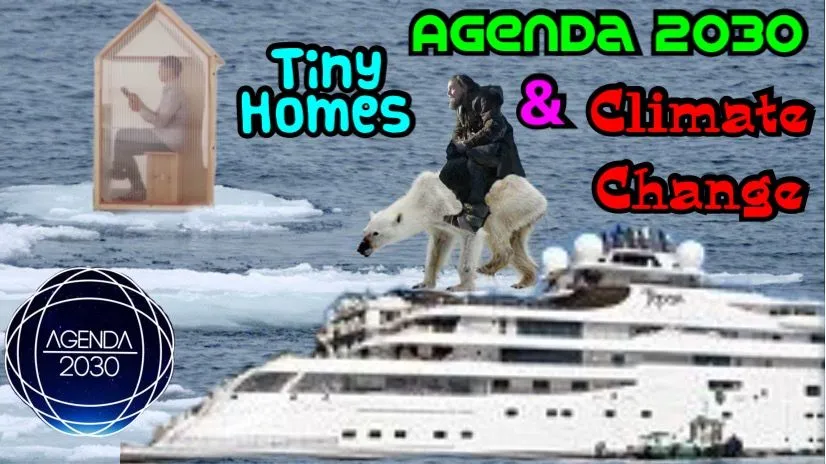
Tiny Homes, Agenda2030 and Climate change: What's the connection?
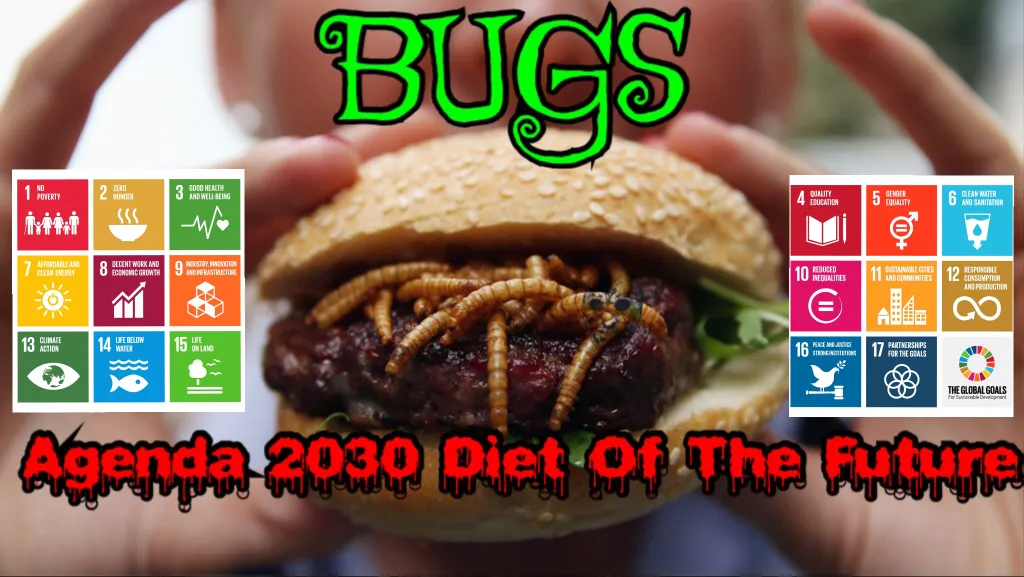
BUGS: Agenda 2030 Diet Of The Future.
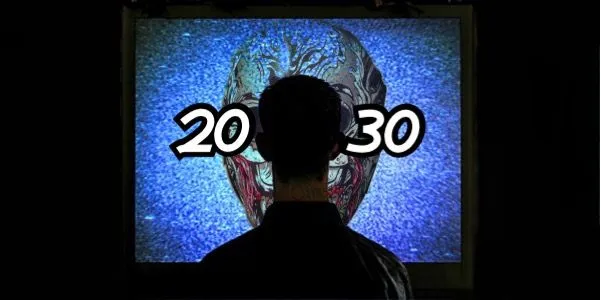
By The Year 2030: The Use of "2030" in Mainstream Media


